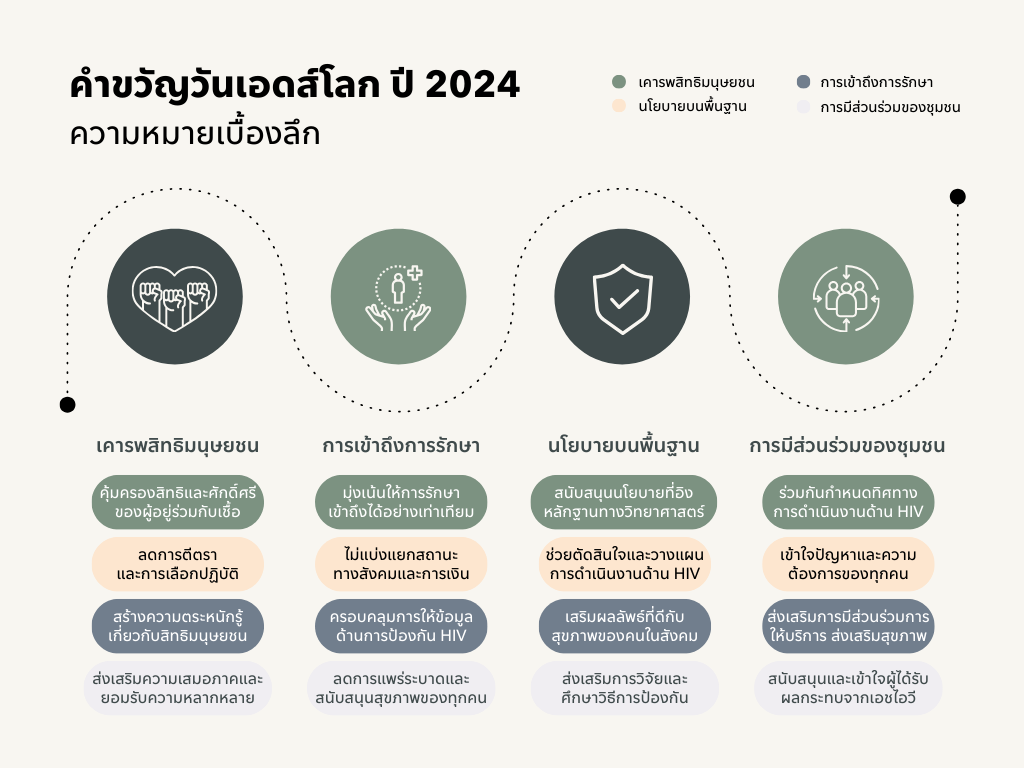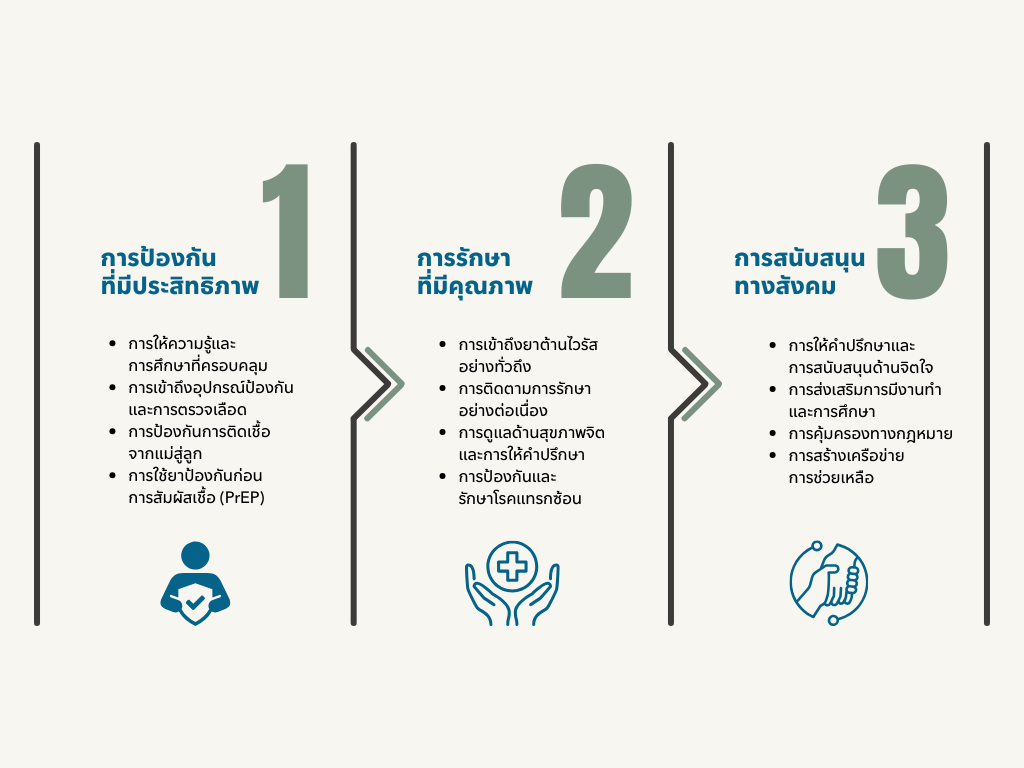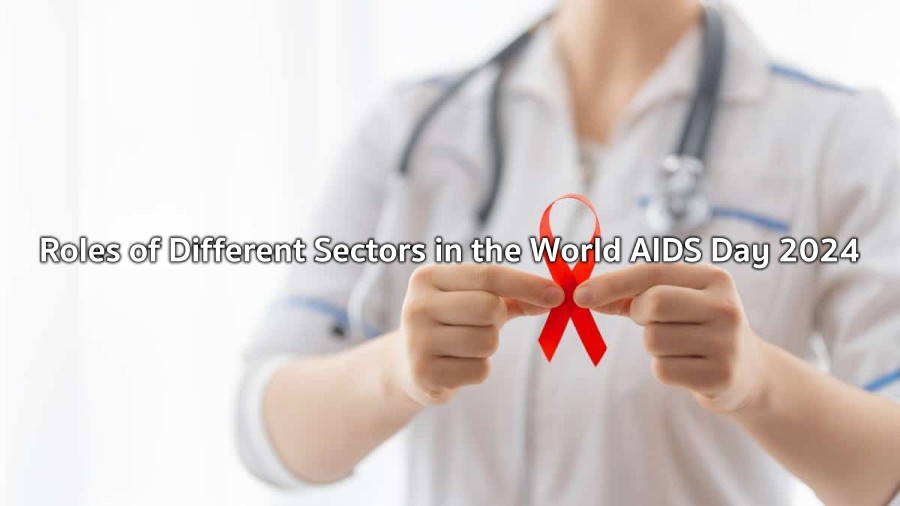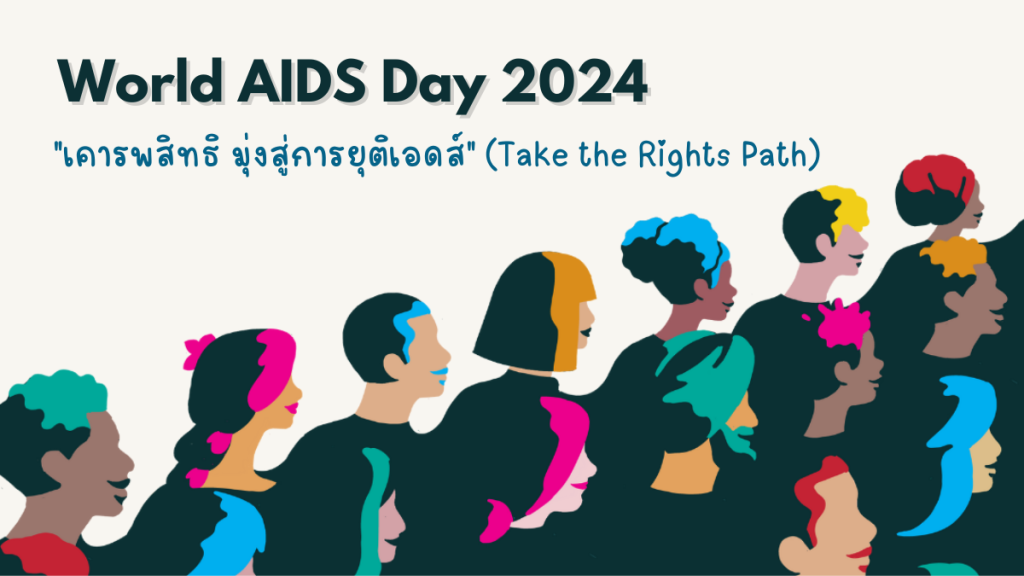World AIDS Day, observed annually on December 1, is an important opportunity for people worldwide to come together to acknowledge the significance of AIDS and show solidarity with those living with HIV. In 2024, the World AIDS Day slogan is “Take the Rights Path” reflecting the global commitment to moving forward toward the goal of ending the AIDS epidemic by 2030.
World AIDS Day Slogan 2024 – The Deeper Meaning
This year’s World AIDS Day slogan, “Take the Rights Path” conveys several crucial ideas related to creating a society that supports and respects those living with HIV. This theme carries multiple layers of significance, including:
Respect for Human Rights
Respecting the rights of people with HIV is at the heart of this slogan, emphasizing the importance of safeguarding their rights and dignity to live free from stigma, discrimination, or prejudice. The slogan underscores the need to raise awareness of the human rights everyone deserves, regardless of HIV status. Respect for rights also entails promoting social equality and embracing diversity within society.
Access to Treatment for World AIDS Day Slogan 2024
Ensuring equal access to treatment is vital, whether for HIV care or prevention. This year’s slogan highlights the need to make treatment accessible to everyone, free from economic or social barriers. It also extends to promoting access to preventative information and resources, such as pre-exposure prophylaxis (PrEP) and effective antiviral drugs. Equal access to treatment helps reduce the spread of HIV and supports the health and well-being of communities.

Evidence-Based Policy
To ensure that actions regarding HIV/AIDS are effective and aligned with the right direction, this slogan emphasizes the importance of grounding policies and measures in scientific evidence. Evidence-based approaches allow for well-informed decision-making and operational planning, leading to better public health outcomes. Examples include research on the effects of antiretroviral drugs and studies identifying the most effective prevention methods.
Community Involvement in the World AIDS Day 2024 Slogan
Communities play a crucial role in shaping HIV-related initiatives. It is essential to involve communities in planning and management, as they understand the issues and needs of their members best. This slogan highlights the importance of community voices in designing programs, services, and health promotion efforts that align with the specific contexts of those affected. Community involvement also fosters an environment of understanding and support for people impacted by HIV.

HIV/AIDS Situation
Today, the situation around HIV/AIDS has improved significantly compared to the past, when fear and misconceptions about the virus were widespread. With advancements in medical science and global community efforts, HIV/AIDS is now managed far more effectively, resulting in notable achievements, including:
Development of Highly Effective Antiretroviral Drugs
One of the most significant advancements is the development of highly effective antiretroviral therapy (ART). These drugs suppress the viral load in the blood to very low levels, enabling patients to enjoy a better quality of life and reducing the risk of transmission to others. ART is a critical tool in managing HIV, as it limits the virus’s ability to spread within the body.
Decrease in New Infections
Campaigns focusing on prevention and raising awareness about HIV prevention methods have led to a significant reduction in new infections in many countries, particularly among high-risk groups, such as people who inject drugs, men who have sex with men, and individuals engaging in unprotected sex. Preventative methods, such as condom use, pre-exposure prophylaxis (PrEP), and sexual health education, are essential in curbing the spread of HIV.
Increased Access to Treatment
Today, individuals living with HIV have greater access to treatment, whether in developed or developing countries. Efforts from international organizations, such as UNAIDS and other non-profit entities, have improved the widespread distribution of antiretroviral drugs, allowing consistent access to treatment. This access enables people living with HIV to enjoy longer lives and reduces their potential to transmit the virus to others.
Reduction in AIDS-Related Deaths
Thanks to advancements in antiretroviral therapy and increased treatment access, AIDS-related deaths have significantly decreased in recent years. Patients who receive continuous treatment can control their viral load, allowing their immune systems to function normally and preventing the complications typically seen in those with weakened immune systems.

Guidelines for Moving Forward with the World AIDS Day 2024 Slogan
Achieving the goal of ending HIV/AIDS requires multifaceted actions to create sustainability and equitable access. The roles of prevention, treatment, and social support are crucial factors. That must be developed to comprehensively meet the needs of those at risk or affected by HIV. Let’s explore each dimension in detail:
Effective Prevention
Preventing HIV infection is a critical step in reducing new infection rates. Using effective prevention methods and ensuring access to necessary tools are key to achieving this goal.
- Comprehensive Education and Awareness: Raising awareness and providing information on HIV prevention for at-risk groups are essential. Education initiatives in schools, communities, and media campaigns help reduce HIV transmission.
- Access to Protective Tools and Blood Testing: Tools like condoms and regular blood testing allow those at risk to protect themselves more effectively. Free community testing services also help individuals receive rapid testing and immediate treatment if necessary.
- Preventing Mother-to-Child Transmission: Providing antiretroviral drugs to HIV-positive pregnant women is crucial for preventing transmission to their unborn children. Comprehensive access to this prevention measure enables children to be born healthy and free from HIV.
- Pre-Exposure Prophylaxis (PrEP): PrEP is a medication used to prevent HIV infection, allowing high-risk individuals to reduce their chances of contracting the virus. This method is highly effective, especially among men who have sex with men and those with multiple sexual partners.
Quality Treatment
Quality treatment enables people with HIV to live normal lives and reduces the chances of transmitting the virus to others. Comprehensive and effective treatment is essential in the fight against HIV/AIDS.
- Widespread Access to Antiretroviral Drugs: Ensuring that individuals with HIV have access to antiretroviral drugs is crucial. These drugs reduce viral levels in the body, promoting good health for those with HIV and reducing transmission risks. Expanding access to antiretrovirals also promotes health equity.
- Continuous Treatment Monitoring: Regular follow-ups and consistent care help patients respond better to treatment and prevent drug resistance that can arise from inconsistent medication adherence.
- Holistic Care: HIV care should include mental health support and counseling alongside antiretroviral therapy. Holistic care improves quality of life and helps individuals feel integrated into society.
- Prevention and Treatment of Opportunistic Infections: People with HIV are more vulnerable to complications, such as tuberculosis and other opportunistic infections. Monitoring and treating these conditions are essential to help patients maintain strong health and lead normal lives.
Social Support
Social support is vital in creating an environment that encourages the well-being of individuals with HIV. Such support not only improves health outcomes but also helps those affected feel accepted by society.
- Counseling and Psychological Support: Individuals with HIV need both physical and emotional support. Counseling and mental health assistance reduce the stress and anxiety of living with HIV. Help them adapt to ongoing treatment more effectively.
- Employment and Education Opportunities: Creating opportunities for work and education allows those with HIV to lead productive, quality lives. Employment provides income and skill development, enabling individuals to support themselves and their families independently.
- Legal Protections: Enacting laws to protect the rights of people with HIV is essential for preventing discrimination. Legal protections ensure that individuals feel safe, secure, and have equal access to healthcare.
- Support Networks: Community networks and organizations supporting people with HIV provide essential encouragement. These networks offer counseling, health information, and necessary support during times of need.

Roles of Different Sectors in the World AIDS Day 2024 Theme
Achieving the goal of ending the HIV/AIDS epidemic requires collaboration from various sectors. Particularly the government, civil society, and private sector, to create an environment that promotes access to health services. Protects human rights, and raises community awareness. Each sector plays a crucial role as follows:
Government Role World AIDS Day Slogan 2024
The government is vital in directing responses and establishing the infrastructure necessary to end the HIV epidemic. This includes policy formulation, health service provision, and ongoing research support.
- Formulating Policies and Laws: It is essential to enact laws and policies that protect the rights of those at risk of HIV infection and those living with HIV. Policies aimed at reducing stigma and discrimination enable individuals with HIV to live confidently and with dignity in society.
- Sufficient Budget Allocation: The government must allocate adequate budgets for health services, testing and prevention services, and antiretroviral drug procurement. Sufficient funding ensures that those at risk can comprehensively access these services.
- Developing Quality Health Services: A quality and accessible health service system is key to managing the HIV/AIDS issue. The government should create systems that meet the needs of target groups, such as establishing community health centers offering HIV testing, counseling, and quality treatment.
- Promoting Research and Development: The government should support medical research and development in preventing and treating HIV. Exploring new innovations, such as HIV vaccines or more effective antiretroviral drugs, will help reduce infection rates and improve the quality of life for those living with HIV in the future.
Civil Society Role World AIDS Day Slogan 2024
Civil society is crucial in connecting with communities. Amplifying the voices of those affected by HIV/AIDS in terms of service provision, awareness-building, and monitoring.
- Community Service Provision: Civil society organizations are closely connected to communities and understand the needs of at-risk groups. They provide health services, counseling, and HIV prevention in hard-to-reach areas, including distributing protective equipment like condoms and implementing PrEP programs.
- Advocating for Affected Individuals: Civil society serves to reflect the issues and needs of people living with HIV to the government and society. This advocacy helps ensure that the voices of those affected are heard, leading to more effective policy changes and operational strategies.
- Monitoring and Evaluating Performance: Monitoring and evaluation are crucial for tracking the progress of various projects. Civil society plays a role in reviewing and providing feedback to the government or relevant agencies to improve service delivery and address identified issues.
- Raising Public Awareness: Campaigning to raise societal awareness of HIV/AIDS issues, prevention methods, and reducing stigma against those infected is a vital role of civil society. Campaigns through various media, both online and offline, help foster understanding and acceptance of individuals affected by HIV/AIDS.
Private Sector Role
The private sector has the potential to provide resources and innovations to help mitigate the HIV/AIDS problem. Create a friendly, equitable work environment for those living with HIV.
- Supporting Access to Medications and Supplies: The private sector, particularly pharmaceutical companies, can help ensure access to antiretroviral drugs and medical supplies at affordable prices. Collaborating with the government and non-profit organizations to distribute medications at lower costs enables individuals living with HIV to receive treatment at all levels.
- Promoting Equal Employment Opportunities: The private sector can create a non-discriminatory work environment for people with HIV. Offering equal employment opportunities empowers those living with HIV to be self-sufficient and financially support themselves and their families. Non-discriminatory employment also reduces stigma and enhances confidence among individuals with HIV.
- Participating in Campaigns and Education: Private companies can support campaigns regarding HIV prevention and educate employees and communities on preventing infection, utilizing various media to raise awareness of the importance of reducing HIV stigma.
- Providing Resources and Innovations: With modern resources and technology, the private sector can develop medical innovations and support systems, such as applications providing health information or reminders for taking antiretroviral medication as prescribed, which are crucial for improving the quality of life for those living with HIV.
Related Article
- HIV and Mental Health : Understanding the Connection and Coping Strategies
- HIV/AIDS | Dispelling Myths and Misconceptions
The 2024 World AIDS Day slogan, “Take the Rights Path”. Serves as a reminder that ending the AIDS epidemic is an achievable goal. If we work together in the right direction. By respecting human rights, utilizing scientific evidence. And fostering collaboration across all sectors. We can create a world free of AIDS. While the journey may present challenges, through commitment and teamwork. We can overcome obstacles and achieve the goal of ending the AIDS epidemic by 2030.

